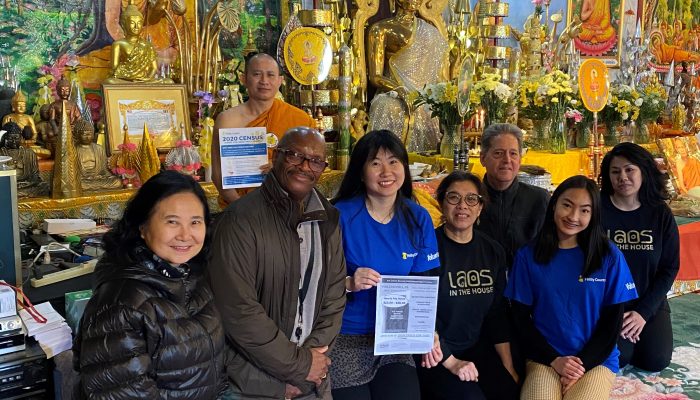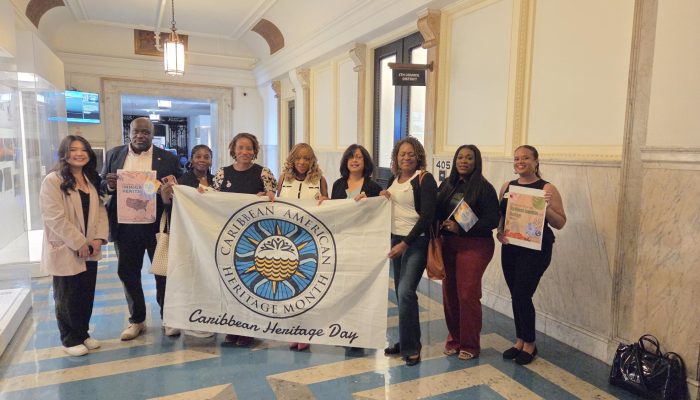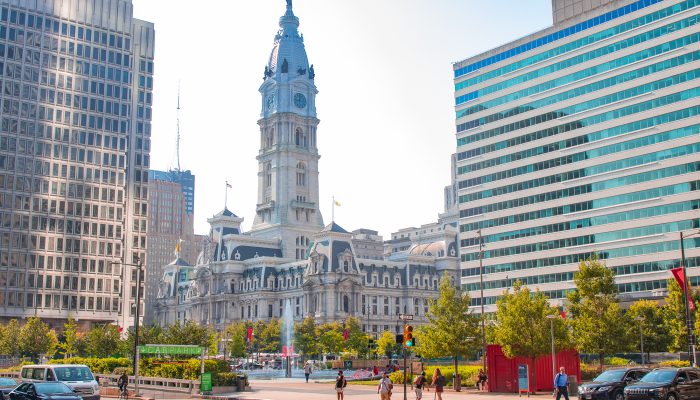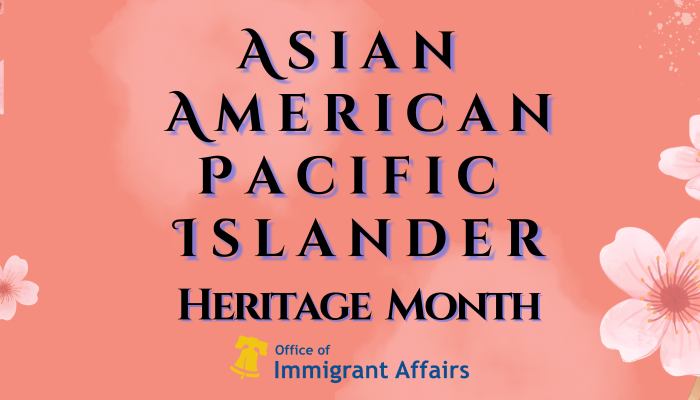May is Asian Pacific American Heritage Month! Established by the U.S. Congress in the 1990’s, Asian Pacific American Heritage Month highlights the stories of people in the United States who are of Asian or Pacific Islander descent. This technically includes people from the Asian continent and islands across the South Pacific including Hawaii, American Samoa, Federated Islands of Micronesia, Guam, and more. In Philadelphia, seven percent of the entire population identify as Asian.
People from Asian countries or the Pacific Islands have contributed to the United States in many ways. After the discovery of gold in California, many Chinese immigrants came to California as part of the Gold Rush and, later, to work on the transcontinental railroad. Chinese immigrants also settled in Louisiana after the end of American slavery because plantation owners wanted new labor to replace emancipated slaves. In Hawaii, sugar companies brought in Chinese, Japanese, and Filipino workers to man their plantations. Hawaii also belonged to Native Hawaiians before 1959, when the islands became an official U.S. State after its annexation. One could say the U.S. would not be what it is today without people from Asia, the Pacific Islands, or immigrants in general.
The term “Asian American” is, however, relatively new. With varying countries of origin, Asian immigrants carried with them the politics of their home country not to mention the difficulties of communicating across different languages. They did not instantly think of themselves as a community. It was not until 1968 that students at San Francisco State University came up with the term “Asian American” to join the Third World Liberation Front. Fueled by the Black Power and antiwar movements, they used “Asian American” to designate common experiences with U.S. racism and colonialism. This shared history allowed people from different ethnic backgrounds to unite and effect larger institutional change. Alongside the Black Student Union, Asian American students struck for five months to establish ethnic studies programs which taught their histories. Their strike spread to other universities like Berkeley, and many Asian American students went on to support movements against wars in the Asia-Pacific, evictions, and gender oppression.
Today, the term “Asian American” is more widely accepted. Official government documents often offer “Asian and Pacific Islander” as a box to check so that people can identify their race or ethnicity. Companies and media platforms will also line up special programs during AAPI Heritage Month to celebrate Asian culture. Still, engaging with communities to drive change continues to inform Asian American identity.
One example is the Mayor’s Commission on Asian American Affairs (MCAAA). Led by representatives from different community groups, the MCAAA meets every month to share resources, talk about common challenges, and propose recommendations that inform City policies. Most recently, in response to racist rhetoric that wrongfully blames Asians for COVID-19, the MCAAA worked with municipal counterparts to release statements and videos condemning hate crimes and xenophobia.
Another example of how community engagement continues to inform Asian American identity is the Philly Counts AAPI Subcommittee. Understanding that the U.S. Census comes once a decade and that the Census determines resources for Philadelphia, more than 100 AAPI leaders came together to help their communities be counted. They met monthly and on Constitution Day 2019 alone, the subcommittee organized 22 Census Champion trainings in 7 languages to educate more than 900 AAPI community members. Since then, the AAPI subcommittee has organized, on average, ten census events a week and engaged thousands of people.
This May, the Office of Immigrant Affairs celebrates (virtually) the tradition of Asian Americans working together for a broader goal. Together with the Mayor’s Commission of Asian American Affairs, OIA is proud to present the following activities:
- Virtual art exhibit of Asian American artists. Throughout May, the MCAAA in partnership with the Asian Arts Initiative and Twelve Gates Arts will feature the work of four prominent, local Asian American artists. Follow the MCAAA on Facebook for more details.
- A wellness check-in. As part of City-sponsored campaign #mindPHL and in partnership with the Department of Behavioral Health and Intellectual Disabilities, the MCAAA will host a webinar that offers a space for Asian Americans to talk about the ways they are responding to xenophobia.
Happy Asian Pacific American Heritage Month!




